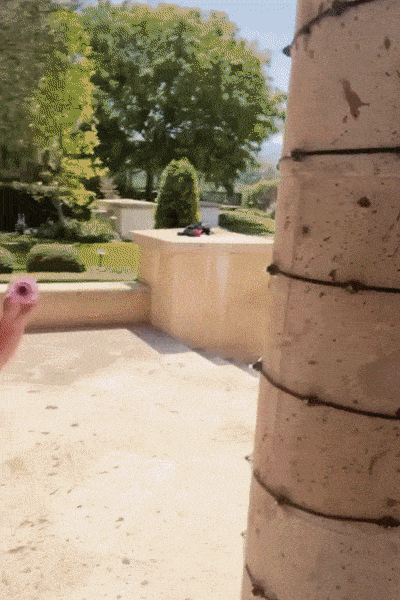
Britney Spears: Can She Ever Recover from Conservatorship Trauma?
07/14/2021Last month, Britney Spears’ conservatorship testimony expressed her wishes to the public.
She wants her conservatorship to end as soon as possible.
Britney will have an uphill battle, and even if she succeeds, her nightmare might not be over.
Being a captive whose day-to-day life is managed by others can take its toll. Trauma doesn’t vanish overnight.
For those of us who live in the United States, we tend to first learn about PTSD in the context of military trauma.
Fireworks can be a powerful and stressful trigger for veterans, just as it’s a pain for dogs, babies, and many sensible adults.
But the realities of trauma and how it impacts people are much more complicated.
Not every combat veteran has PTSD, and they make up only a small minority of PTSD patients.
Sexual assault is more likely to leave someone traumatized. So is domestic violence.
In all cases, trauma tends to have a more severe and lasting impact upon children — and yes, this is relevant to Britney.
Mental health specialists are weighing in on how a 13-year conservatorship could have a long-term impact on Britney.
It’s not just that she has lost many of her freedoms and human rights since 2008 — years that she can never get back.
But the sick twist of PTSD is the P — it’s post-traumatic stress disorder. Sometimes, it feels worse after the trauma.
Right now, Britney’s primary focus regarding her conservatorship is likely on ending her current situation.
She would presumably like to remove the forced sterilization preventing her from having children.
Additionally, without the conservatorship, she could travel freely, marry Sam Asghari, and visit friends without seeking permission.
Unfortunately, ending the conservatorship may be the beginning of a new mental health battle.
The first step will be for Britney to fully acknowledge that she has been through a traumatic ordeal.
This isn’t a run-of-the-mill unfair business arrangement; she is a prisoner in her own life, and her widely reviled father is her jailer.
In the midst of trauma, the human mind will do all that it can to cope.
This is why, for many people, they don’t truly appreciate how bad a situation was — a bad childhood, an abusive partner — until it’s in their past.
The human mind is resilient, but those coping mechanisms that allow you to survive at the time break down over time, and can even keep you in denial.
Britney knows that she is a victim. She wants to sue her family.
She wants some of the people involved in this to go to prison.
This is a very positive sign when it comes to her mental health, because it means that she is not in denial.
Of course, one hopes that she understands what an adjustment her new life will be.
If her conservatorship is abolished, she will be able to make everyday choices like shopping trips for herself.
She will also, for the first time in so long, be able to make her own career decisions and reproductive choices. It may feel like a lot at once.
As we mentioned, children have particular vulnerabilities to trauma and its lasting effects.
So much of what happens in our world is the result of generations of childhood trauma playing out in damaged adult minds.
In Britney’s case, we have to remember that she was working under her father’s “guidance” from childhood.
Eventually, Britney turned 18 and became an adult.
Despite the extreme creepiness that grown adult men showed towards her when she was a minor and then an adult teenager, she could make some choices of her own.
It was only later, after several years of adulthood, that she was robbed of her fundamental human rights and once again put under her father’s supervision.
Britney may be thinking back to those few years of relative, limited freedom.
She will have to rekindle that sense of personhood that was taken from her in 2008 by the court.
However, she may also have to discover new aspects of who she is as a mature, 39-year-old woman … one able to make choices.
This can all be daunting, overwhelming, and in some ways, even scarier than the now “familiar” bounds of the conservatorship.
Fortunately, recovery is not something that Britney will have to do alone.
Trauma, cruelty, and suffering are extremely common aspects of our world, and that means that there are others with similar experiences.
No two traumas are identical, because they happen to different people and in different circumstances.
It is all too common for those recovering to look and say “well, this isn’t as bad as mine” or “they had real trauma, mine wasn’t like that.”
A woman held under a conservatorship for 13 years, locked in a basement for 20 years, or trapped in a bathroom for a day could still have a lot in common.
There are of course trained psychiatric experts who know how to treat trauma.
But survivors have coping mechanisms to share with one another, little tips on what makes their days easier.
Britney could learn a lot from others. She might even be able to teach how she has coped to help in turn.
Britney may even find that there are others who have endured extremely similar situations.
Conservatorships like hers are not as rare as people think — it’s just that most people aren’t famous.
A perfectly capable friend or coworker or neighbor might not have autonomy over their finances, and you wouldn’t know until they told you.
Britney is going to have to reassemble her life and mental state, rebuild her confidence, and stake a claim on life.
Her image has been twisted and smeared for years — by many, with different or even opposite motivations.
If Britney is able to get her life back, recovery won’t happen overnight. But it will be possible.
Of course, whether her conservatorship can actually end, let alone end like she wants it to, is very much a hypothetical.
Because these guardianships are (supposedly) normally applied to people who cannot and will never be able to live independently, they are difficult to impossible to unravel.
Still, with so many voices on her side, Britney’s case has hope. And disability rights advocates hope that it could be a crucible for systemic change.
Source: Read Full Article


















